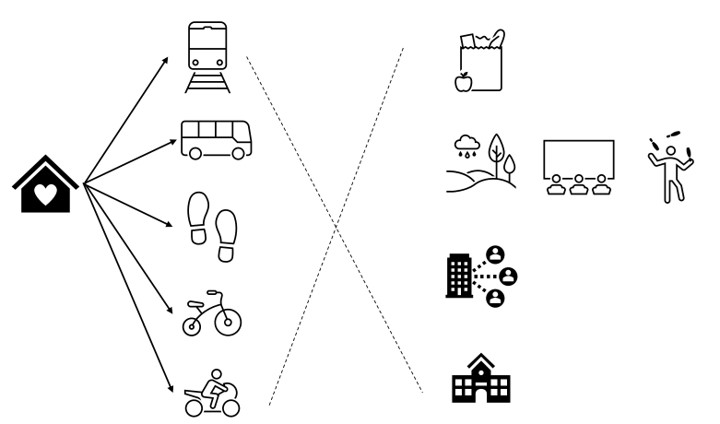The agent-based model (WP3)

Modelling experts have been researching the interplay between human mobility and COVID-19 transmission since the outbreak of the pandemic. They have obtained results that would help in the control of the pandemic at the national, regional, and community levels, but they have had little success in obtaining empirically verifiable results at the neighborhood (intraurban) level and at lower scales (e.g., streets or daily routines). This is attributed to a lack of data due to legal protection of one’s identity.
This work package could help us understand social pandemic behavior on the street-by-street or building-by-building scales from limited empirical data.Therefore, this work package proposes an ABM that simulates human mobility choices in the context of COVID-19 and environmental risk. Based on focus groups data (from WP1), we proposed artificial agent groups at the neighbourhood scale. These agents adapt their mobility choices and activities autonomously at a given moment to improve their wellbeing and to respond to the exposure risk from COVID-19. This modelling approach provides critical behavioral information and helps to bridge the gap between individual data (e.g., surveys) and community data (e.g., city data) in the analysis of mobility choices in the context of the pandemic.
